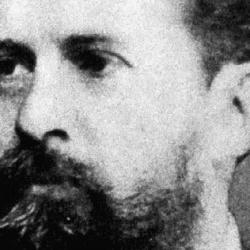In his freshly published Triune God, Fred Sanders emphasizes that God’s self-revelation is a communicative act, and that the communication doesn’t come only in act but also in speech: “Revelatory words are not epiphenomenal to revelatory acts. Rather they are equiprimordial and unavoidable. The missions of the Son and the Holy Spirit are irreducibly verbal, though not exclusively verbal.” That last qualification is essential. A “merely verbal-propositional” treatment of God’s triune revelation is “very bad,” a perfect way “to strip the doctrine of the Trinity of all its significance and desiccate most of its interests” (61). Yet, though the Trinity is not “merely verbal,” merely information, God’s self-unveiling isn’t less than verbal.
Sanders emphasizes this over against Karl Rahner’s influential treatise on The Trinity. Relying on the research of Dennis Jowers (The Trinitarian Axiom of Karl Rahner), Sanders argues that Rahner’s thoroughgoing anti-extrinicism leads him to reject any role for “extrinsic” verbal revelation. Given Rahner’s understanding of revelation, “he must read the reality of the Trinity off of the events of salvation history, eschewing any appeal to verbal-propositional revelation as the foundation of the doctrine. This is why Rahner treats the economy of salvation as the exclusive source of our knowledge of the Trinity. . . . Rahner is able to treat the words of Scripture as revelation only by viewing their ‘material contents’ as ‘verbalized objectifications of the revelation which is already present in the gratuitous radicalizing of human transcendentality in God’s self-communication” (57-9).
Early theologians worked out the Trinity through interpretation of God’s acts “plus its construal of inspired words.” Rahner uses only “half of the equipment” (59).
This too is very bad. Since the missions are themselves “irreducibly verbal” (70-1), to deny the verbal is to lose the actual shape of the missions, which are the missions of the “teaching Son and the testifying Spirit” (61). Sanders thinks the consequences even more drastic: Without acknowledging the verbal character of the missions, we lose an essential dimension of Trinitarian life itself: “One of the (perhaps unintended) casualties of the modern overinvestment in act at the expense of speech is that the conversation among Father, Son, and Holy Spirit was for some time harder to discern in Scripture, and harder to credit when it was discerned. If God does not actually speak, it follows necessarily that the Father and the Son do not speak to each other in the Spirit. Losing our grip on the Trinity’s speech to us, we dropped something even bigger, which is the Trinity’s speech within itself about us, and behind that, the Trinity’s own conversation above us.” And then, again, the economy slips through our fingers: Without this grounding in the eternal triune conversation, we can’t be properly oriented to interpret the economy.
If Rahner is right about the equivalence of the economic and immanent Trinity, his failure to reckon with the speech of the Son and Spirit in the economy distorts his understanding of the ontology.











